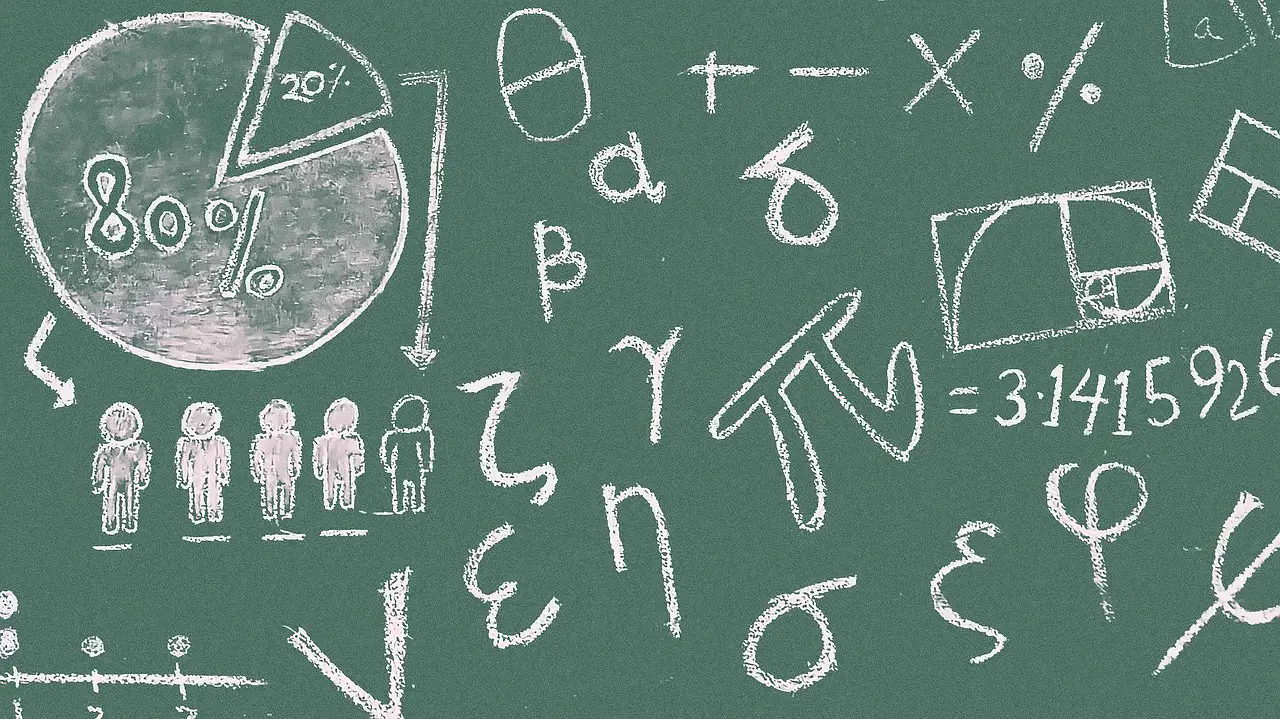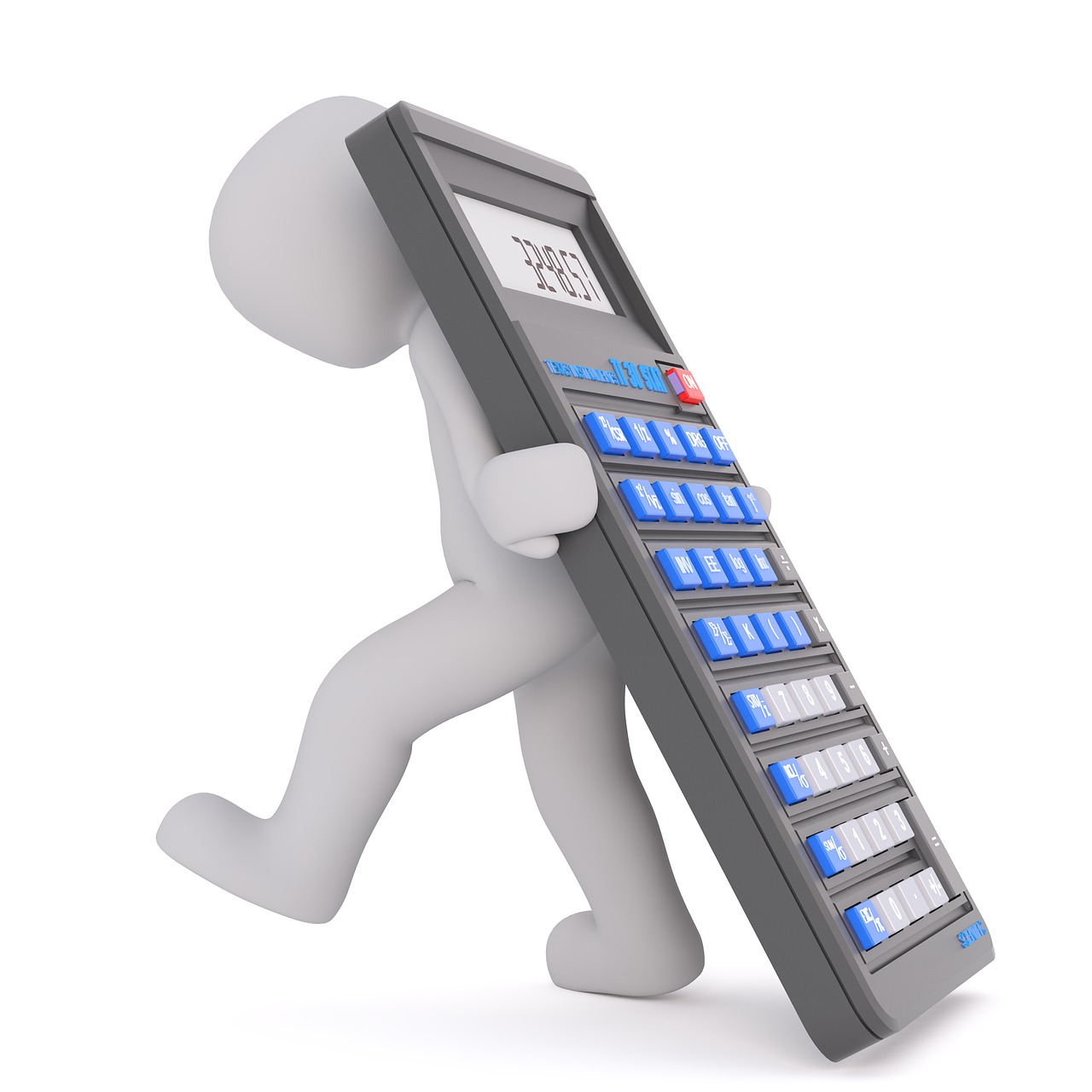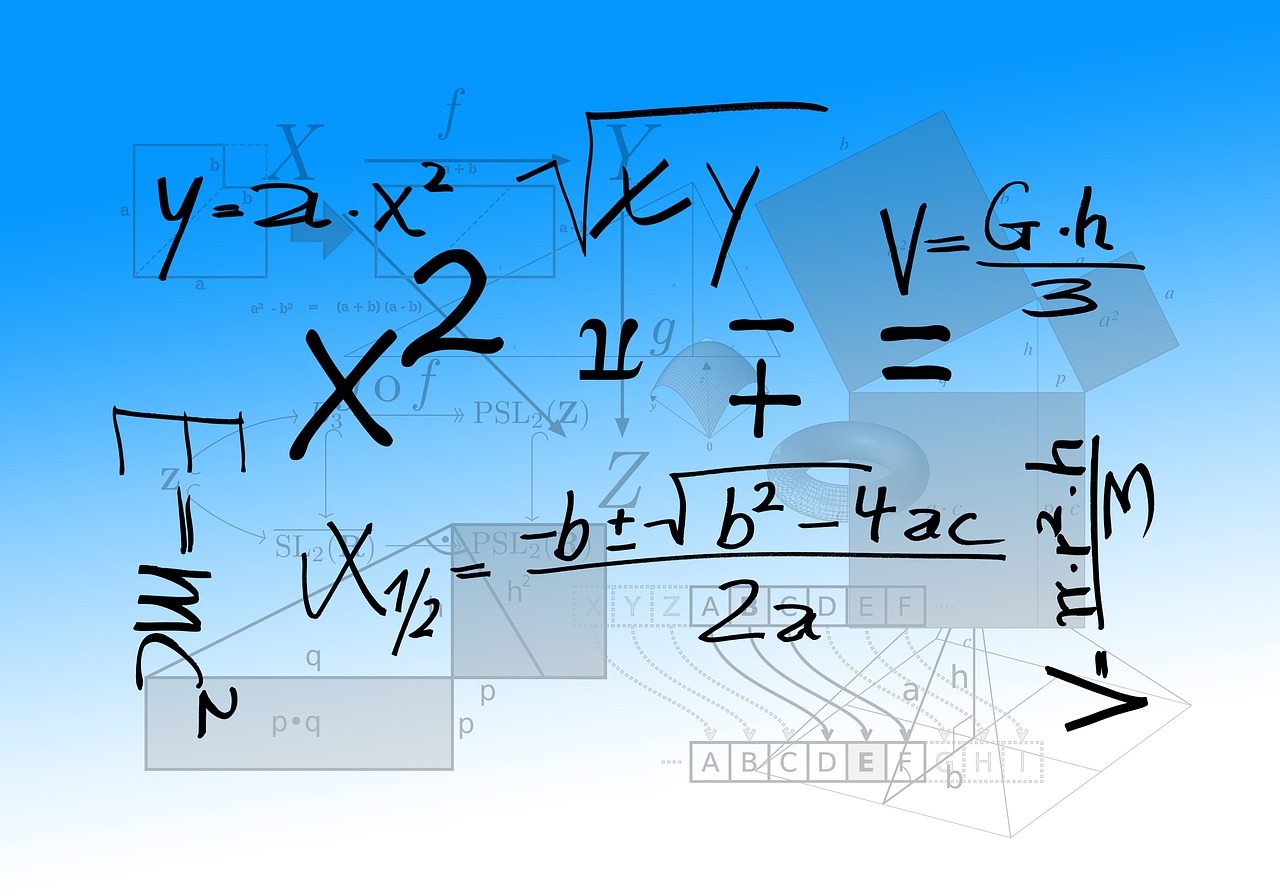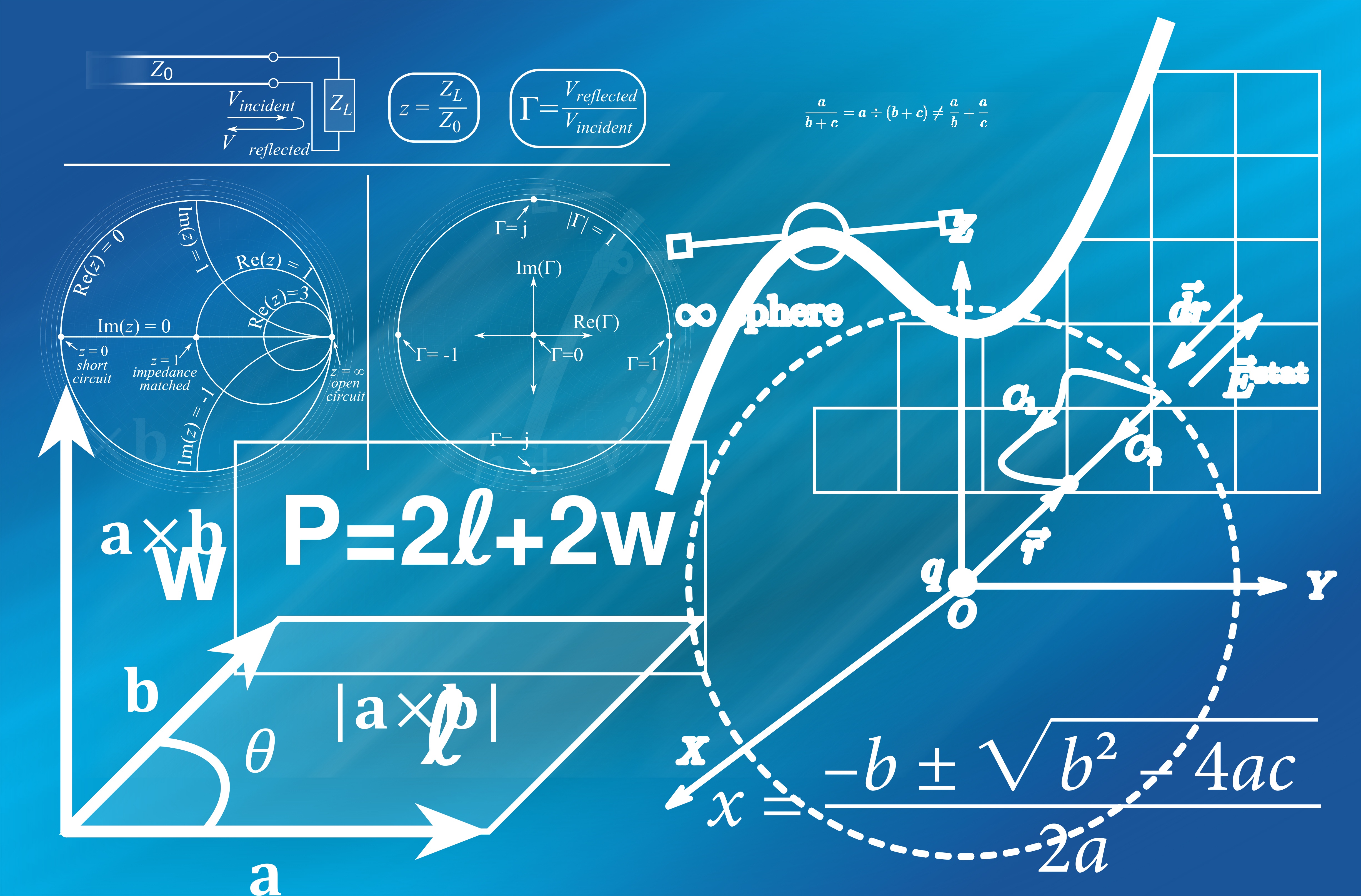Table of Contents
Are you struggling with how to get better at math? If you’re like most students, you find math difficult and frustrating.
Simply thinking about solving equations and memorizing formulas causes your palms to sweat. Or perhaps you believe that you are not a “math person” and that no matter how hard you try, you will never grasp the foundations of geometry or algebra.
Many believe that some are born with the skill to be good at math while others are not. Many studies, however, have shown that there is no innate mathematical skill; anyone can become good at math if they put in the time and effort.
You can learn how to achieve good scores in math even if you don’t like numbers. Anyone may improve their math skills with the right attitude and tips.
Plus, math is a skill that you will use long after you finish your formal education. Confidence in numbers will help you every day, from managing money to filing taxes to making cakes.
So, how to get better at math for long-term success?
This blog post will look at 11 tips for turning your fear into confidence, no matter what problems your teacher (or life) throws you.
These proven strategies will help you improve math and give you the confidence to do well in logical reasoning and mathematical thinking.
Why is math a challenge & how to get good at math?

How to get better at math: Many students need help with their math. This makes them less likely to try to solve them. Have you ever had that happen?
The main problems here are the need for more clarity and persistence. Once you know how to approach and solve a problem, you will feel confident, making you more interested in solving different problems.
And as you work on different questions, you’ll find the answers and better understand what to do. So, they both have something to offer the other. Yes, just like the angles that go together that you learned about in Geometry class.
Is it hard to deal with math problems? We don’t agree. There are a lot of examples of students who did poorly in this subject but got much better at it over time. As a place where students can learn math, we have seen a lot of these kinds of big changes.
To make such changes, you need to use the right strategies. Or sometimes, more than one. Some help you look at math in a deeper and more focused way, while others are fun, like playing games to get better at math.
How can you get better at math fast?
How to get better at math: Have some faith and confidence. If you always tell yourself and others that you’re bad at math, poor, or hate math, STOP doing this.
No subject is hard or easy for you; it all depends on how you view it.
You weren’t born bad at math (sorry for the big words); you just got that way because your math teacher taught you in a way you didn’t like or were never interested in math.
So, what should you do next?
Believe in yourself and keep telling yourself, “I’m not bad at math, I just need to work on it, and then I can solve any math problem.”
Remember that if you think you can get better at math, you probably can, but if you think you can’t, you probably won’t. So, you should always think you can solve any math problem; it doesn’t matter if you do.
Begin With Foundations
How to get better at math: Math is a subject where learning new things builds on what you already know. For example, you will learn how to add, subtract, divide, and multiply. Then, as you learn more, you can move on to algebra, geometry, and calculus, which are more difficult.
If you need to learn how to divide or add, algebra will be hard for you. And to move on to calculus, you’ll need a good grasp of trigonometry and algebra. Because of this, it is important to start with the basics and build from there.
Know The Importance Of Number Sense

How to get better at math: Many learn math by memorizing facts. This means they’ll look at a multiplication table and learn, for example, what 99 is. This strategy can work, but it could also lead to trouble in the long run. If you’re taking a test and get nervous for no reason, you need to remember everything you’ve learned.
Instead, it’s helpful to be good with numbers. Here’s an example of one way this can be done. If you want to know what 99 is, you can multiply 10×9 and see that it’s 90. Then, since you want nine groups nine instead of ten, you would take 9 away from 90 to get 81.
There’s more to number sense, but that’s the main idea. You want to understand how numbers and math functions work, not just memorize them.
Set Goals
How to get better at math: You can decide what you want to work on when you know the basics. If you want to be good at algebra, you don’t need to pay attention to geometry. Once you know what kind of math you need, you can find the quickest way to learn it and spend your time and energy on that.
So, let’s take a look at these 11 tips that will help you do well in math:
1. Focus on building a number sense
How to get better at math: One of the best ways to improve math is to focus on developing a number sense. This means knowing what the numbers mean and being able to work with them in your head confidently. Start by getting good at adding and taking away. Then learn how to multiply and divide, and try to do as much as possible without a calculator.
When students look at their answers, they should be able to say, “That seems too big.” Always break down your thoughts and ask yourself, “Why did I do that?” or “Does that make sense?” Or, know when you’re just guessing and not using logic to solve a problem. Here are 4 easy ways to get a good feel for numbers:
Understand place value
Place value is knowing what each digit in a number means. It’s a basic math skill that students often have trouble with, but it’s a key part of being good at math.
Using physical objects to represent numbers is a good way to learn about place value. Students can learn each number by physically moving blocks, counters, or even coins around the digits.
Learn your time’s tables
When learning math, your timetable is the only thing you need to remember. It’s best if you can remember your tables as soon as possible. Please don’t wait until 6th grade to try them out. By the fourth grade, you should be able to say them without thinking too much.
Estimate and reflect
Before calculating, students should learn how to estimate their solutions. This is an excellent technique to see if your response makes sense. If you are asked to subtract 50 from 2000, and your answer is close to 1000, you know you have done something wrong.
Always consider whether the solution is reasonable. If not, go back and double-check your work. This habit of reflection will follow you long after you finish school.
Mental Maths strategies

Mental math is a fantastic approach to improving your math skills. Learn to solve math questions without needing a calculator or pen and paper. This may appear challenging, but several basic mental math practices might help.
When adding 9 to any number, for example, you can add 10 and then deduct 1. So, if you try to add 9 + 7 mentally, try this: 10 + 7 = 17, 17 – 1 = 16.
2. Understand the concept – Don’t memorize the process
How to get better at math: Students often need help understanding the concept underlying them to memorize math formulas or processes. Many students, for example, memorize the techniques for adding fractions but need help understanding why the denominators must be the same. As a result, they may get this process mixed up with other fraction calculations.
We must understand each subject’s WHY, not just the HOW. When you understand the fundamental concepts, you can apply them in new ways and solve issues more readily.
Here are 3 ways to get you going:
Use real-world examples
Consider everyday scenarios for learning new math ideas. This will help you understand why the topic is essential, which will help you remember it.
For example, if you are learning about percentages, think about a time when you had to figure out how much a discount was. Consider the various ingredients you use when cooking if you’re learning about ratios.
Draw pictures or use a visual representation
Drawing illustrations and diagrams is another excellent approach to grasping new topics. This is especially helpful if you learn best by seeing things.
Draw a picture of people sharing a pizza when you are learning about fractions. Or, if you want to learn about angles, draw a clock face. This will help you see how math works, making it easier for you to understand.
Try to make connections.
When you learn something new, try to see how it fits in with what you already know. This will help you think more deeply about the new idea and see how it fits into the bigger picture.
Many students still need to learn that fractions, decimals, and percentages all mean the same thing. So if you’re having trouble with one, try putting it in context with the others.
3. Embrace your mistakes with a growth mindset
How to get better at math: A growth mindset is the idea that people can get smarter over time. Even if math is hard for you, you can still get better if you work hard and keep at it.
Students developing a growth mindset see mistakes as chances to learn and improve. So don’t let your mistakes make you feel bad about yourself; instead, use them to learn more.
Here are some things you can do:
Learn fearlessly
Making mistakes is an important and natural part of learning. So don’t be afraid to make mistakes; learn to accept them. Instead of erasing the wrong answer, put a cross through it and write down what you learned.
Practice, practice, practice
It’s simple: the more you practice math, the better you’ll get. So, whenever you have the opportunity, do some extra math problems. You could even try to teach someone else. Math, like sports, requires consistent practice.
Seek out challenges
Don’t be afraid to push yourself. If a problem is too simple, attempt something more difficult. This will push you out of your comfort zone and expose you to new ideas.
4. Learn the art of problem-solving
How to get better at math: Become a better problem solver. Not knowing the answers is more important than learning how to ask the right questions. This will help you decide what you should know about the problem and how to solve it.
Polya’s 4-step method for solving math problems is something we often tell our students to use:
- Understand the problem. (Recognize what’s being asked)
- Devise a plan. (Respond to what is asked)
- Carry out the plan. (Develop the result of the response)
- Look back. (Reflect: What does the result tell me?)
Understand the problem
The 1st step is to carefully read the question and ensure you know what is being asked of you. Look for words like “how much,” “evaluate,” “more than,” “difference,” “simplify,” etc., and then ask yourself:
- Do you understand everything?
- Can you write the problem in your own words?
- Do you know what was given to you?
- Do you understand what the goal is?
- Is there enough information?
- Is there any other information?
- Is this a problem that you’ve already solved?
Devise a plan
Once you know how to solve the math problem, you need to make a plan. This is where you decide how to solve the problem. Trying different things to see what works best for you is often helpful.
Always remember that there is more than one way to find the answer. Some popular strategies are:
- Making a list
- Drawing a picture
- Eliminating possibilities
- Using a formula
- Taking chances and checking
- Solving a simpler but related problem
- Taking steps backward
Carry out the plan
The third step is to put your plan into action and find a solution. Here is where you work to solve the problem.
- Implement your strategy from step 2
- Check each step as you proceed
Look back
The fourth and last step is to review your work, think about how you did it, and make sure your answer makes sense.
- Did you get the right answer?
- If you didn’t, can you figure out what went wrong?
- Can you use a different way to check your work?
- What has this problem taught you?
This last step is very important and should be taught in math class. It helps you see what went wrong and learn from it. You can also consider your work and see how far you’ve come.
Remember that we often have to go down a path before we realize we took the wrong turn.
5. Keep your work neat and organized.
How to get better at math: It’s important to keep your work neat and in order so you can check it later. This will also help you see how far you’ve come and see if you’re making the same mistakes over and over.
Many students need to be taught HOW to learn and study math at school, which is a shame. But, like when you learn a language, some layout rules are basic math skills that can help you get better results.
There’s no reason for a sixth-grader or seventh-grader to wait until seventh or eighth grade to use them. Here are seven workbook hacks that will help you learn math faster and better:
- Write the date, the topic’s name, and the problem’s number on each page.
- Leave some room between each problem so you can add notes later.
- When you need to, always show working out.
- Rule a line down the middle of each page.
- Use ticks and crosses to check your work.
- If you get a wrong answer, try the question again until you get the right one.
- Write down each topic’s most important words and “aha!” moments.
6. Adopt the mastery mindset approach
Mindset matters a lot. Regarding math learning, believing that you can improve and be ready to put in the effort is key to success.
Students should remember that making errors is acceptable and necessary for learning. This helps children become more resilient and persistent in the face of adversity.
Flip your thinking
One way to get a mastery mindset is to talk to yourself positively. This means positively talking to yourself, or rewriting your story, even when you do something wrong. For instance, instead of saying, “I’m so bad at math,” try, “I’m getting better at math every day.” Or we can say, “I haven’t figured this out yet,” instead of “I don’t know.”
Set smart goals

How to get better at math: Setting a goal offers you something to strive towards and allows you to recognize how far you’ve come. It’s also a terrific method to take control of your journey and skill set.
Some goals you could set for yourself include:
- I plan to do math every day (30 minutes)
- I plan to attempt 5 enrichment questions per week.
- When I’m stuck on a problem, I’ll seek support from my teacher.
Ask for feedback
Feedback is information that can help you know how well you are doing and where you need to improve. Remember to be constructive when providing or accepting feedback. Specific, objective and actionable feedback is preferred.
Feedback is useful for improving your understanding of fundamental concepts and identifying areas where you should concentrate your efforts.
7. Take your time – Learning math is not a race.
How to get better at math: Learning math is not about speed. It would be best if you learned math at your own pace and in the method that makes the most sense to you for the best results.
Everyone learns in their unique style and at their own pace. Some people learn best by doing, while others learn best by listening and seeing. Find out what works best for you and stick with it.
Einstein said it best: “It’s not that I’m so smart; it’s just that I stick with problems longer.”
Develop fundamental fluency within a topic
Take your time learning a new concept before moving on to the next. Math is cumulative, which means that each new concept you learn builds on the ones you’ve already learned. At the same time, every topic is also related to the others. Once you know the basics of a subject, you can practice it to solidify what you know.
Revisit complex problems
Learn to look back at problems that were hard for you. Don’t just forget about them and move on. Re-doing old problems will help you understand them better, whether they are simple math problems, number skills, or complicated equations.
Enjoy the struggle
The best way to get better at math is to struggle with the material until you finally get it. This change from “individual struggle to success with guidance and support” is called “the zone of proximal development,” and it’s where real learning happens.
Stay with problems longer.
We often get “stuck” and can’t figure out what to do. Even though you want to move on, you should fight the urge and think about the problem for a little longer.
When we stick with a problem, two things happen: first, we learn how to commit to it, and second, we give our brains time to figure out a solution.
8. Seek help from an experienced maths tutor
How to get better at math: Math tutors and math classes are widely available, both in-person and online. It is crucial to choose one that best meets your specific requirements.
Choosing the right tutor can significantly impact your math understanding and enjoyment. Consider the following while selecting a tutor:
- Are they qualified to teach math?
- Do they have a thorough understanding of the material?
- Can they provide individualized lesson plans?
- Do they allow for flexible scheduling?
- How do they keep track of progress?
Many math tutoring programs focus on pounding you with practice worksheets, which is an issue. While this is significant, it is only one component of the equation.
A skilled tutor will assist you in comprehending the “why” behind the process, working on problem-solving skills, consolidating your knowledge through inquiry-based discussion, and inspiring you to fall in love with learning.
Contextual lessons
Understanding processes is not enough; you must also be able to apply them in real-world circumstances. Math might appear less intimidating and more beneficial in the right environment.
Personalized to your needs
With the right help and guidance, you can get better at math.
Flexible and convenient
Some tutors provide sessions in person and online, making it easy and convenient for families who are always on the go.
Contact them to learn more about their customized lessons and unique way of teaching. Better yet, schedule a free online test, and their program manager will make a lesson plan just for you.
9. Establish A Routine
How to get better at math: You need a way to solve problems and learn new ideas to improve math. If you learn how to solve, it will be easier the next time you have to solve the same equation. In the long run, this will save you time and work. This is true if you’re trying to solve a big problem.
If you have a good routine for learning math, you won’t have to worry about having to do the same problem over and over again because you’ll already know how to do it. You’ll see patterns and trends as you repeatedly do the same things.
10. Apply Math Problems To Real-World Challenges
How to get better at math: To make math more interesting, use it to solve problems in the real world. Some people think math is hard to understand and has nothing to do with the real world. Even if some of this is true, it doesn’t have to be seen as such. For example, the Pythagorean Theorem is about how shapes of different sizes relate to each other. Try to use it in everyday situations that involve triangles. Try to get better at math by finding ways to use what you learn in your own life.
11. Consider Enrolling In Private Math Tutorials
How to get better at math: Math tutoring can help you learn about different topics. For example, some students who could do better in school might need to realize that they need to understand basic ideas better. With a tutor’s help, a person can see how different subjects are connected. This will help them understand math better, improving their skills.
Math can be hard enough on its own, but with the help of an experienced tutor, you can learn at your own pace. So, if you have trouble with math, getting a private tutor can give you the help you need to do well. If you want to be more competitive or get the tools you need to do well, private math tutoring can help.
Remember that it’s a skill to be persistent.
When we want to do something, we sometimes want it to be quick and easy. When it comes to skills, though, this is different. To train your brain and body, you must do a lot of work and keep at it. Stay calm and relaxed if there are many things you don’t know. Even math geniuses have to learn these things. No one was born with a natural ability to count. Remember that making a mistake is good because you now know which is the wrong answer to get rid of when trying to solve a problem.
Resources to help you understand math concepts
How to get better at math: You’re not the only one trying to learn math better. There are a lot of apps and programs that can help you learn new things and get better at what you already know. Here are some to think about.
- Symbolab’s suite of over 300 step-by-step calculators may help you learn, practice, and explore advanced math topics like pre-algebra, trigonometry, calculus, and word problems.
- Khan Academy is a mission-driven nonprofit that has grown from its founder Sal Khan’s do-it-yourself tutoring lessons for his cousin into a huge library of 4,300 video resources and self-paced courses.
- Mathway is an app that can help you solve almost any math problem. Once you type in or upload a picture of your equation, Mathway gives you a step-by-step answer. It has topics for people of all ages and gives free answers, but you have to pay to see how to do something step-by-step.
- WolframAlpha is an answer engine. It is a math-focused version of Google, where you can type in questions and get AI-generated answers.
- Geometry Pad makes it simpler and fun to make basic geometric shapes, learn about and change their properties, and figure out measurements. It’s also responsive and dynamic, so you can quickly change shapes and values within a coordinate system on any device.
Math games for practice
How to get better at math: Although tools can help you build procedural understanding, math is more than just punching numbers in. Interactive math games are an excellent way to practice and reinforce new math skills and concepts and refresh basic foundations. Here are a few games to try.
- King of Math is a fun math game with characters, timed tasks, and a lot of leveling up. Its hours of playtime will help you hone your mental math skills. It focuses mostly on middle and high school math abilities, but it can be a wonderful refresher on pre-college fundamentals if you need additional practice.
- Math Brain Booster Games function similarly to a personal trainer for your brain. It has numerous training modes to help you improve your concentration and problem-solving skills. It is mostly aimed at college-aged and older students.
- Star Dash Studios – a math app for high school and college students with an interesting plot. The action occurs on a movie set, and you must fulfill missions given by the team using everyday math skills. Star Dash Studios tries for real-world settings to help students understand the importance of math abilities.
FAQs: How to get better at math?
Why is math so hard?
How to get better at math: No subject is hard and easy. But math takes a lot of time and effort compared to other subjects. If math is so hard for you, you must spend more time on it. You answer only a few math questions to get better at math. Even if you can’t figure out how to do the math, keep going. If you mess up, think about what went wrong.
Why can’t I get better at math?
How to get better at math: If you are afraid to solve math problems and give up quickly when you can’t, you probably will get better at math.
How can I get better at math fast?
How to get better at math: If you want to get better at math quickly, you should study math quickly, give yourself enough time to learn it, and do too many math problems (mostly similar types).
What are the tips for improving my math skills?
Tips for improving your math skills:
- Break down complex problems into simpler ones. The great thing about math is that every problem is built on skills and ideas that work together. Take your time solving a hard problem. Instead, take some time to break it down into smaller steps.
- Review the underlying concepts. Of course, you can only solve a problem once you know its main ideas. The Harvard Kennedy School’s Education Next journal says that if you want to do operations with rational numbers, you need to know how to work with integers, rational numbers, decimals, and fractions.
- Don’t rush. “patience is a virtue” is also true in math. Take your time.
- Find a quiet place to work. Studying at home might be the new norm, but your house could be free of distractions. Stop the TV, the music, and the podcasts. Set up a work schedule and a place to work that will help you learn more.
- Practice, practice, practice. And don’t just practice; you should also be ready to fail. If you’re always right, you’re not pushing yourself, so put in the time and go the extra mile.
- Talk about math and get help if you need it. Being resourceful is a key skill for learning, especially in math. Not only will knowing about and using learning resources help you when you get stuck, but it will also help you build a learning community. People think of math too often as something one person can only do. One of the best ways to study more is to talk to your peers about what you’re learning and how you’re learning it.
Final words: How to get better at math?

How to get better at math: Math is an important skill everyone needs to learn. Using the simple tips and useful advice in this article, you can get a head start on becoming more confident and skilled in math.
Whether you are a student who is having trouble keeping up or a parent who wants to help your child with school, there is always something you can do better.
All of it starts with having the right attitude. Math is an adventure. It’s not about how fast you can go. The only way to reach your full potential is to learn without fear and enjoy the twists and turns.
When solving a problem, you should always improve your “number sense,” figure out “why,” and ask many questions. Don’t be afraid to ask for help from a professional, whether it’s a website or a certified mentor. Always push yourself, keep your work clean, and have fun along the way.
The great thing about math is that you can find it everywhere. The universal language helps us find out what is happening in the world. So, the next time you can’t solve a problem, take a step back and look at the bigger picture.
Everyone has the potential to do well and get better at math if they have the right tools and help. The most important thing is to keep practicing and to believe in yourself. Remember that making mistakes is just a sign that you are getting better. So, why don’t you do it? Today, find a new way to learn math and improve your skills.


